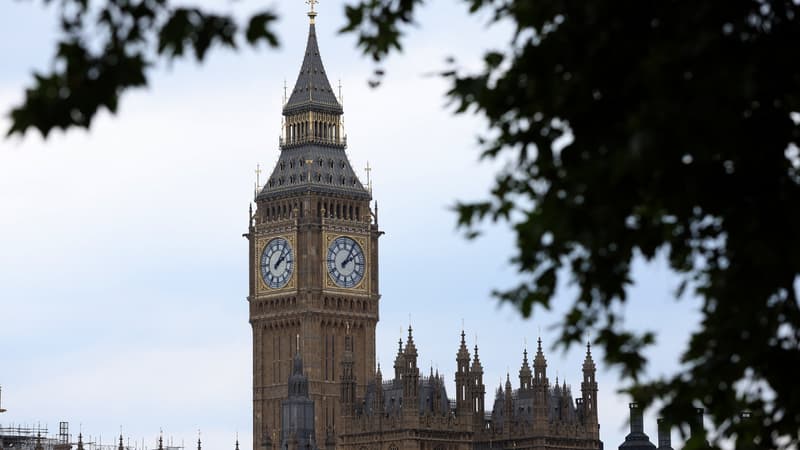Noise is increasing in the UK. After the withdrawal by the police on Monday of an anti-monarchist protester who approached Parliament during the visit of King Charles III, another story is controversial in the United Kingdom. Paul Powlesland, a lawyer from the capital, was in Parliament Square, London, on Monday when he held up a blank sheet of paper, says on twitter. Then a police officer approaches her and asks her to state his identity.
“He confirmed to me that if I wrote ‘Not my king,’ I would be arrested under the Public Order Law because someone might be offended,” he said.
Section 5 of this law allows the police to arrest people who engage in “threatening or abusive words or behavior, or disorderly conduct,” or display “any writing, sign or other visible depiction that is threatening or abusive in the ear or view of a person who may feel harassed, alarmed or distressed”.
This argument does not hold true for Paul Powlesland: “A period of silent mourning for the Queen is fine, but using this period to cement Charles’s ascension as King and quell any dissent to the ascension” is “scandalous”, he wrote. He also filmed part of the discussion and posted it on Twitter.
Paul Powlesland told British television channel ITV on Tuesday that he was not outside Buckingham Palace, the sovereign’s official residence, when police came to see him.
“I would not have left Buckingham Palace, because that is where people are grieving. I was outside Parliament, the center of our politics, where someone proclaimed himself king and said that I was his subject,” he said.
Similar incidents have taken place in recent days in various UK cities. On Monday, an activist from the GlobalMajority movement, which “opposes imperialism and defends the planet,” for example, announced that she had been arrested in Edinburgh, Scotland, for holding a “Fuck imperialism, abolish the monarchy” sign. (“I * ***** imperialism, we abolish the monarchy”).
NGOs criticize the arrests
Several human rights NGOs have criticized the security forces’ reaction to anti-monarchist protesters. The director of the British freedom of expression NGO Index on Censorship, Ruth Smeeth, for example, considers that the arrests of recent days are “very worrying” and that the right to freedom of expression, including the right to demonstrate, should be “protect” whatever the circumstances.”
“Citizens across the country and beyond continue to mourn the loss of the Queen, a loss that is deeply felt by many. However, we must ensure that this event is not used, by accident or design, to in any way erode freedom.” of expression that is enjoyed”. by the citizens of this country,” Ruth Smith wrote in a statement released Tuesday.
Responding to criticism, London police said on Tuesday they wanted to find “a balance between the rights of protesters and those of others who wish to mourn and reflect.”
The monarchy in debate
The question of the place of the monarchy in the United Kingdom, but also elsewhere, was revived after the death of Queen Elizabeth II. The Movement for an Australian Republic, which calls for the end of the constitutional monarchy in the country, recalled, for example, a day after her death that the queen supported the right of Australians to decide on their political system through a referendum.
According to a YouGov poll published in May, only 27% of Britons are in favor of abolishing the monarchy. They included Paul Powlesland and a dozen others, who demonstrated Wednesday night with anti-monarchy banners outside Parliament. They were not detained by the police: “a victory for freedom of expression”, estimated the lawyer.
Source: BFM TV


